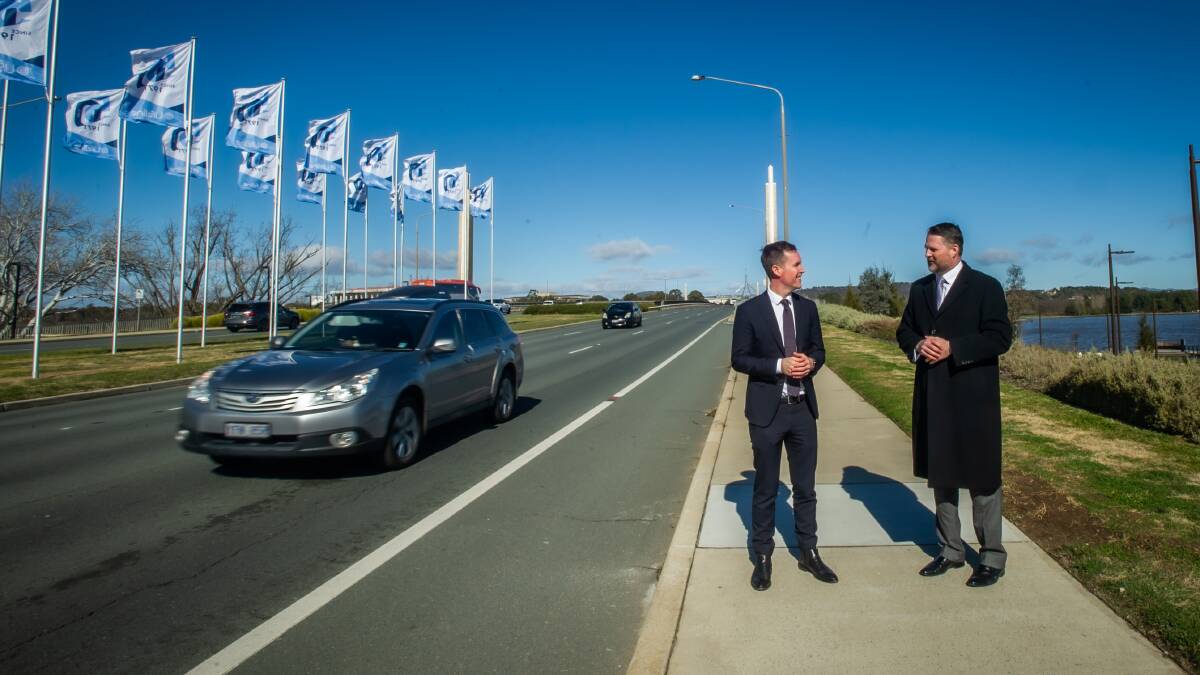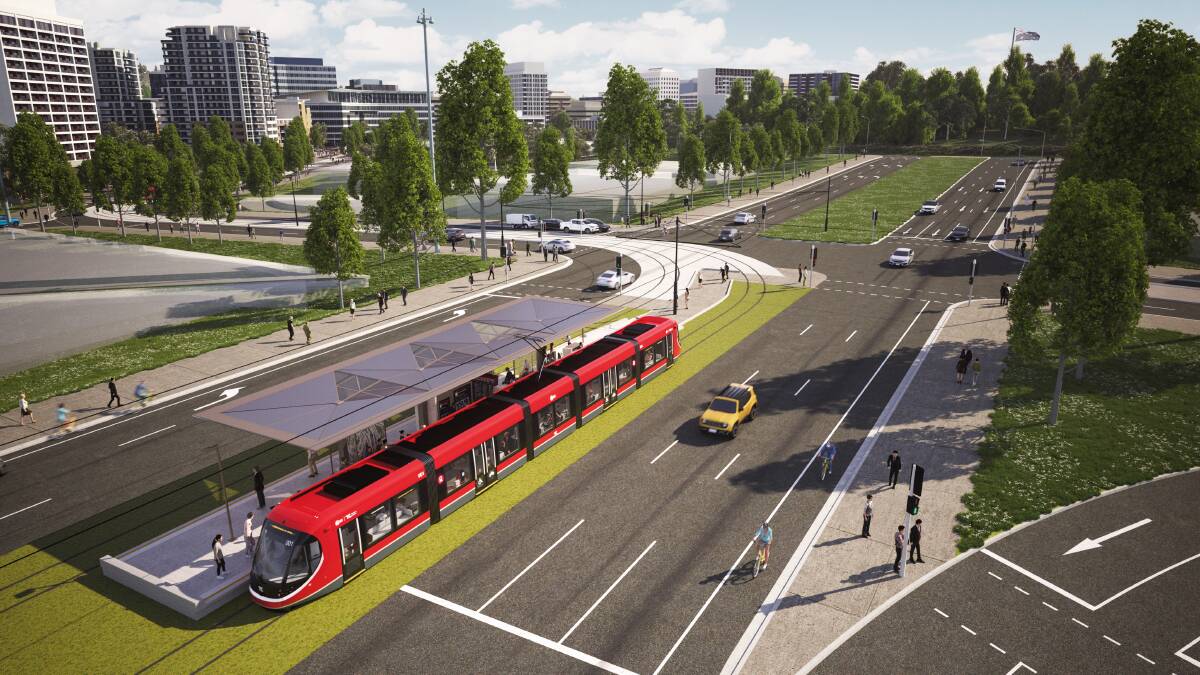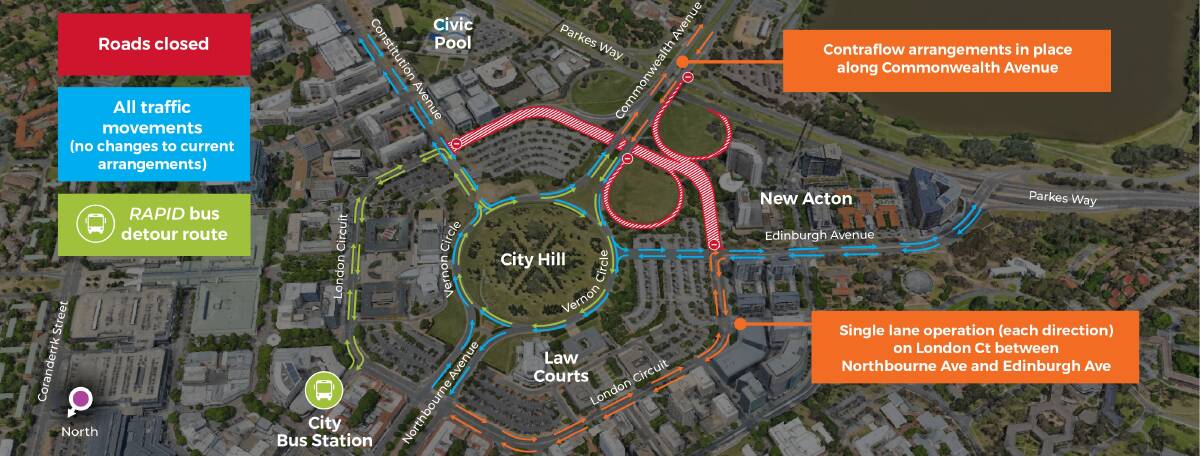The second stage of Canberra's light rail project could be as transformative for the city as the Olympics were for Sydney's transport network two decades ago, a leading traffic expert says.
The ACT government said on Wednesday commuters would face years of disruptions and delays during the project, with Commonwealth Avenue to face a capacity reduction of nearly 80 per cent.
Transport Minister Chris Steel said motorists could see a 15 minute increase in the amount of time it takes to move through the city.

But Dr Geoffrey Clifton, a senior lecturer in transport management at the University of Sydney, said the disruptions may not be as bad as people expected.
"A lot of the traffic does disappear because people do respond by changing their travel times, changing the route they drive, car pooling, working from home, and all those other options," Dr Clifton said.
"On their own, none of the [options] are going to be the magic bullet, but together it all adds up to people still managing their day-to-day without nearly as much disruption as people are afraid of."
Dr Clifton, who advised the ACT Auditor-General on light rail's first stage, said the 2000 Olympics forced people in Sydney to radically rethink their transport habits, and Canberra could see the same positive effect.
"A network that has space for the car, space for public transport and space for walking and cycling is more inclusive overall. The good news is that Canberra has got so much space, that you can have all of those things," he said.
The ACT government will continue to lobby federal departments to allow more flexible work in its efforts to reduce peak-hour demand.
"If we can get several large employers to enable their workforce to work more flexibly, it will make a massive difference to our road network and to keep our city moving," Mr Steel said.
The ACT government has established a disruption taskforce to help lessen the impact of the project on commuter into and through the city.
But opposition transport spokesman Mark Parton said the level of traffic disruption showed Canberrans had been misled for a decade by Labor and the Greens on the impact of light rail.

"Today was the first time that we came to understand that we're going to face traffic gridlock, day and night, for four of five years. That's a remarkable impost," Mr Parton said.
"And certainly this has not been broached at this point, and so I think Canberrans have a right to be extremely disappointed."
Mr Parton said the project's "hazy timelines" meant it would not be a period of short-term pain for long-term gain.
"I think that when people were endorsing and voting for this project, they didn't believe we were going to have a construction project that went on for this period," he said.

Mr Parton stopped short of committing the Canberra Liberals to business subsidies for operators affected by the project's construction.
"I genuinely fear that businesses will close in the city as a consequence of such a long period of extreme disruption," he said.
But Mr Steel said the project would generate more than 6000 jobs, which would help to boost businesses along the route during and after construction.
"We'll be working very closely with businesses on the London Circuit route, but all more broadly around Canberra who may be affected by the congestion impacts," he said.
MORE A.C.T. POLITICS NEWS:
- ACT government warned about 'financial fraud' in ChooseCBR
- Flammable cladding scheme to offer concessional loans for building remediation
- Zed Seselja warns of 'extreme' ACT euthanasia laws
- 'Human error' to blame for mistakenly releasing prisoner
Meanwhile, the ACT Council of Social Service called on the government to consider introducing free public transport to encourage stronger take up and ease traffic at peak times across the city.
"In addition to making buses and trams free, the ACT government should address costs experienced by people with disability, invest in community transport at sustainable levels with long-term commitments so that providers can renew vehicle stock and plan across several years," the council's acting chief executive, Craig Wallace, said.







